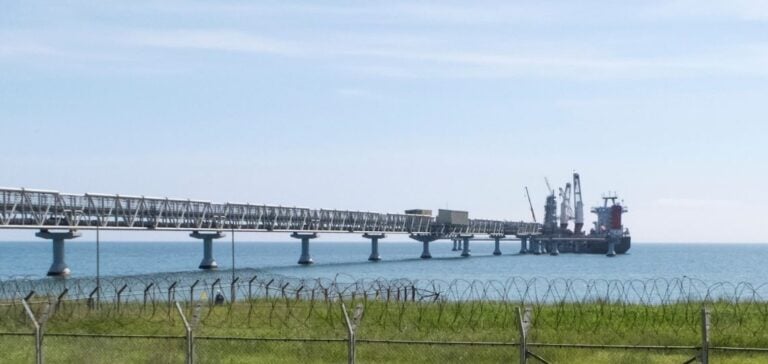Russia continues to build up its energy production capacity, even under international sanctions. A semi-submersible drilling rig, named Severnoye Siyaniye (Polar Lights), is due to arrive on the Russian island of Sakhalin to begin drilling a well in the Yuzhno-Kirinskoye field. This field, located in the Kirinsky block in the Sea of Okhotsk, has been subject to US sanctions since 2015 due to Moscow’s role in the Ukrainian crisis.
Sanctions context and challenges
Sanctions imposed by Washington prevent foreign companies from participating in oil and gas exploration or production in Russia’s deep waters. Despite these restrictions, Russia has found ways around these obstacles to exploit its energy resources. The Yuzhno-Kirinskoye field has estimated reserves of 711.2 billion cubic meters of natural gas, 111.5 million tonnes of gas condensate and 4.1 million tonnes of oil. Gas production is forecast at 21 billion cubic meters per year.
Sakhalin’s strategic role
The Sakhalin project is crucial for Russia, as it could supply the pipeline to China, a key energy partner. At the start of 2022, Moscow and Beijing agreed to increase Russian gas supplies via a new pipeline, designed to export 10 billion cubic meters of gas a year. Currently, Russia already supplies gas to China via the Power of Siberia pipeline, operational since December 2019, as part of a 30-year contract worth over $400 billion. The pipeline is expected to reach its full capacity of 38 billion cubic meters per year by 2025.
Russian Innovation and Resilience
The Severnoye Siyaniye platform, commissioned in 2011, is a testament to Russian ingenuity in the energy sector. Capable of exploration and production drilling of oil and gas wells to a depth of 7,500 meters, it is suitable for marine depths of up to 500 meters. Prior to its arrival in Sakhalin, the platform underwent scheduled maintenance work at the Chinese port of Zhoushan. Analysts believe that the successful exploitation of energy resources at Yuzhno-Kirinskoye could indicate that Russia has acquired the technological capacity to overcome the restrictions imposed by sanctions. This initiative illustrates Moscow’s determination to continue developing its energy infrastructure, despite the challenges posed by geopolitics. Russia’s progress in exploiting its energy resources despite international sanctions offers a striking example of resilience and innovation in the energy sector. As global energy demand continues to grow, Russia’s ability to maintain and develop its energy projects will become increasingly crucial to global energy stability.





















